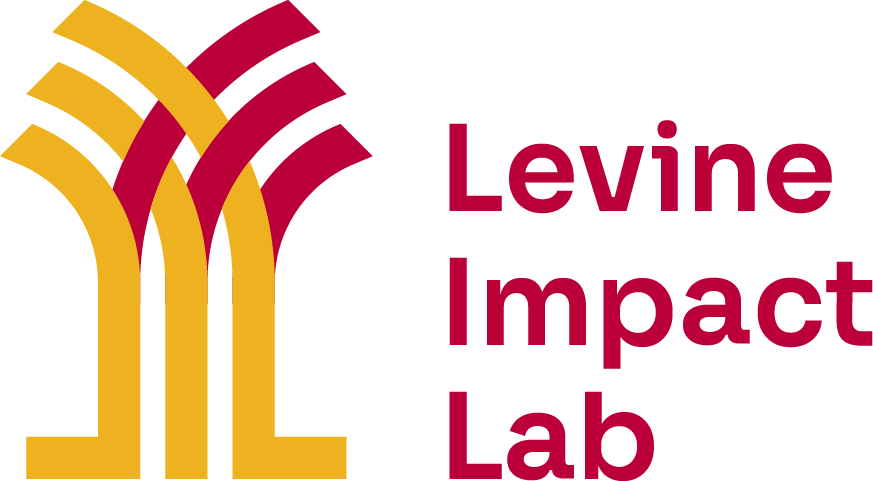In Conversation with Southside Blooms: Rethinking the funder and grantee relationship for organizational growth
Three years. Four organizations. Countless moments of growth.
As our first Levine Impact Lab cohort wraps up their three-year journey this December,
we’re reflecting on the stories that inspired us—of resilience, community, and lasting impact.
What a lovely meet up we had with Quilen Blackwell and Hannah Bonham Blackwell, founders of Southside Blooms (SSB)—a nonprofit transforming vacant lots in Chicago into vibrant flower farms while creating jobs for vulnerable youth. Throughout our conversation, they often highlighted the supportive friendship between SSB and LIL, and how that authentic relationship enhanced their experience over the past three years.
Quilen shared how realizing that a partner like LIL could be both a funder and a friend reshaped his understanding of nonprofit support. He explained that the strong bond between SSB and LIL contributed not only to organizational growth, but also to his and Hannah’s personal development as leaders. “Peter and Gary... they kind of went above and beyond, more than just the foundation. It does really feel like they’re friends…having them as part of our support system has been very nice. Even Gary coming out and supporting the [In Our Nature] film premier—you know, he didn’t have to do that.” Hannah also recalled Gary’s genuine effort to get to know them personally during his visit to their flower shop in the summer of 2024, as well as Peter’s stories about formative experiences from his childhood summers at camp during their first retreat together, which reinforced the sincerity of their partnership.
Their collaboration with LIL continually pushed them to think differently and strive for improvement. Through ongoing conversations and dedicated coaching, Quilen and Hannah recounted significant growth, both professionally and personally. They noted that LIL’s emphasis on workshops and practical learning empowered SSB with tools and resources to make meaningful change. Quilen specifically mentioned the vital business connection with Berlin Packaging, which would not have happened without Peter’s introduction. These experiences helped them adopt a more executive mindset, enabling them to better lead their organization.
Quilen praised LIL’s high expectations for grant partners, noting that their confidence in the cohorts’ capabilities inspires a sense of urgency and fuels motivation for lasting impact. “They know we’re capable of achieving incredible things, and that acknowledgment pushes us to aim higher every day,” he said.
For those considering partnership with LIL, Quilen and Hannah encourage future grant partners to make the most of advisory services, attend every meeting, and draw on the collective wisdom of the network. Quilen emphasized that these sessions are key to refining a nonprofit’s operations and fostering long-term resilience, while Hannah recommended meeting with as many people as possible to gather diverse advice and insights. By embracing these opportunities for learning and connection, future partners can look forward to a transformative collaboration that nurtures both their mission and their growth.






